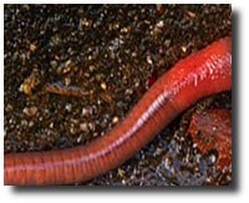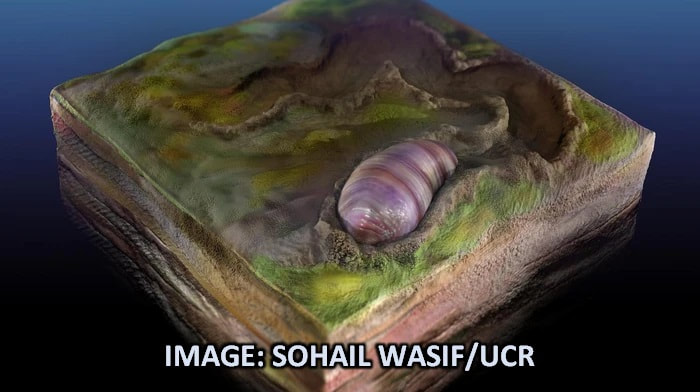A worm such as I?
|
It is becoming increasingly challenging communicating to the masses, primarily because I’m getting older, just about every year it seems! I often find myself using a phrase or reference that many in my audiences aren’t familiar with. Such is the case with this Question of the Month. A worm such as I? What’s that all about?
|
|
Those of you who, let’s say, “weren’t born yesterday,” probably remember the old hymn titled, “Alas! And Did My Savior Bleed?” written by Isaac Watts (1674-1748) and composed by Hugh Wilson (1766-1824). For the rest of you, hymns are songs we used to sing in church, but since they’re not exciting, we don’t use them anymore.
Alright, I’m mostly kidding. I don’t want to be an old fuddy-duddy, but I grew up with hymns and enjoy them more than contemporary praise music. That’s just a preference. I am certainly not saying the worship music in churches today is wrong, although you can always take something too far in any direction. I just really appreciate the doctrinal richness of hymns, but I realize most people today seem to relate more to the contemporary music style. Enough on that. Here's the first verse of the hymn: |
|
Alas! and did my Savior bleed?
And did my Sov'reign die? Would He devote that sacred head For such a worm such as I? |
|
The old hymn was drawing attention to the fact that Jesus loved us so much, He was willing to die on a cross for us, even though, contrary to being stellar examples of righteousness, we are more like lowly worms.
|
|
Now the connection. A fairly recent discovery tells us more about how we supposedly really are worms… highly evolved worms that is. BBC News (Mar 2020) posted an article entitled, “Fossil worm shows us our evolutionary beginnings.” They claim this worm (about the size of a grain of rice) lived 555 million years ago and is the first example of a “bilaterian” life form (i.e., a creature that has a “front” and “back” end, with a gut in the middle. It allegedly gave birth to the majority of animals on the planet today, including humans. Is there any evidence for this extraordinary claim? None.
|
|
You don’t need evidence. You see, evolution is a proven fact. Therefore, whenever you discover something, it fits in with the evolutionary narrative. Oh sure, once-in-a-while you have to tweak your story, sometimes very significantly, but you never, ever question whether it actually happened or not. After all… it’s a fact!
I need to be careful here. I said there’s no evidence. That’s not really true. There’s almost always some kind of “evidence.” The question shouldn’t really be whether or not there’s evidence. The question should be — is the evidence presented credible? As I’ve mentioned countless times, the evidence doesn’t speak for itself. It always has to be interpreted. The way you interpret evidence is by using what you already believe to look at something new and say, “This is what I think it means.” Evidence doesn’t speak, scientists do. And when scientists are discussing past, unobserved events, they are always giving us their opinion regarding what they think may have occurred. Their interpretations are always based on what they believe to be true in general. That is, what their “starting point”, bias or presuppositions dictate. There is a slew of scientific problems with the idea that this worm evolved into most other life forms on the planet over hundreds of millions of years. However, when most readers view articles such as this one, they are, generally speaking, completely unaware of these issues. They often get caught up in the excitement of the mysterious discovery, which most often entails the concept of “millions of years ago.” Here’s just one (of a myriad) of issues with this story. It’s fresh on my mind because I am in the middle of developing a new video series on the Genesis flood and it relates to something I am including in one of the segments. On the one hand, evolution is said to be so powerful it can turn a worm into a human being! In contrast, we often find fossils of creatures that look virtually identical to animals alive today. One example is the jellyfish. We have discovered massive graveyards of jellyfish, which are claimed to be 500 million years old and look the same as living jellyfish. They call the modern versions, “living fossils” for obvious reasons. So, while evolution is powerfully turning a lowly worm into human beings (over 500 million years), it is also powerfully preserving the jellyfish from changing at all! You can’t have it both ways! Either the processes that occur will produce massive changes over time, or they won’t. Evolution, when described accurately, purports to be an undirected process. When creatures reproduce, random accidental copying errors creep into their DNA and accumulate at a significant rate. A creature can no more decide it would like to evolve lungs than it can decide it is content with itself and not undergo any further change! The fossil record includes something referred to as the Cambrian Explosion. I’ll have to be unbelievably brief in addressing this at the tail-end of this article, but here’s the gist of it. The fossils in the geologic column, rather than showing slow, gradual, continual change throughout time (going from extreme simplicity to extreme complexity), show virtually instantaneous complexity and then slight variations over time on those themes (all within distinct limits). Life forms appear abruptly, fully-formed, seemingly coming “out of nowhere” and then do not increase in complexity over time, but simply display variation within their own kind of life, just like Scripture indicates (“Let the earth bring forth the living creature after his kind…” Genesis 1:24, as just one example). We need to get in the habit of using “critical thinking” skills as we read the scientific literature, or really any kind of literature. What are the actual facts and what is just part of the story they are telling? Yes, we are all just lowly worms, in a spiritual sense, but certainly not in any physical sense. We are “created in the image of God” (Genesis 1:27) and are “fearfully and wonderfully made” (Psalm 139:14). Let’s give God the glory and tell others every chance we have! |
|
If you have any questions about this or any other issue, please don’t hesitate to contact us!
To print a copy, view PDF file. |



